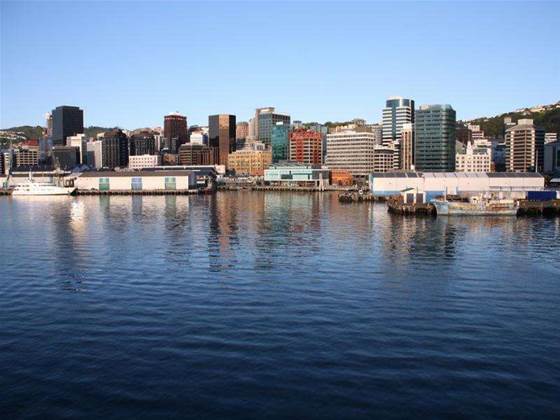Representatives from the Internet Industry Association (IIA) and Google Australia are among a handful of Australians crossing the Tasman next month to digest the latest round of talks between parties to the Anti-Counterfeiting Trade Agreement (ACTA).

The ACTA is a trade agreement being forged between the United States and allies including Australia, Canada, Japan, New Zealand and nations within the European Union, which seeks to impose universal obligations around the protection of copyright and other intellectual property rights.
The internet industry is concerned that any over-zealous measures to protect these rights may place an unwarranted burden on the industry and internet users.
The latest round of ACTA talks are scheduled to take place in Wellington, New Zealand on April 12-16 and will likely be attended by representatives from the Department of Foreign Affairs and Trade (DFAT), IP Australia and the Attorney General's Office.
All other Australians will have to wait for various parties within the ACTA discussions to leak its progress (as has been the case with the last several rounds of talks) as all discussions are being held behind closed doors.
The New Zealand Government's Ministry of Economic Development has agreed to meet stakeholders on the evening of Tuesday, April 13, following a full day session dedicated to "Enforcement Procedures in the Digital Environment".
IIA chief Peter Coroneos, Matt Dawes of the Australian Digital Alliance and Ms Ishtar Vij from Google Australia's Public Policy team have all confirmed that they will be in Wellington during the talks.
The industry is concerned about leaks suggesting the treaty will create new international laws adjusting the safe harbour clauses that indemnify service providers from the actions of their subscribers.
At a guess, Google could also be concerned by recent leaks that suggest search engines (aka information location tools) might be found to be breaching copyright by undertaking typical indexing functions, an aspect of the discussions that have raised alarm among New Zealand Government representatives.
Feds continue to claim transparency
DFAT has continually told iTnews that the Australian Government is doing everything within its power to provide transparency around what it hopes to achieve by participating in the talks, telling us earlier this month that the Australian Government has no intention of changing its domestic laws to harmonise with the treaty.
This week DFAT updated its fact sheet to reflect earlier promises that the treaty will not consider "three strikes" rules.
"The ACTA does not focus on private, non-commercial activities of individuals, nor will it result in the monitoring of individuals or intrude in their private sphere," the updated factsheet said.
"There is no proposal to oblige ACTA Parties to require internet service providers (ISPs) to terminate users' connections on the basis of accumulated allegations of online IPR infringement (the so-called "three strikes" rule)."



_(28).jpg&h=140&w=231&c=1&s=0)

_(23).jpg&h=140&w=231&c=1&s=0)





 iTnews Benchmark Awards 2026
iTnews Benchmark Awards 2026
 iTnews Executive Retreat - Security Leaders Edition
iTnews Executive Retreat - Security Leaders Edition
 iTnews Cloud Covered Breakfast Summit
iTnews Cloud Covered Breakfast Summit
 The 2026 iAwards
The 2026 iAwards











_(1).jpg&h=140&w=231&c=1&s=0)



